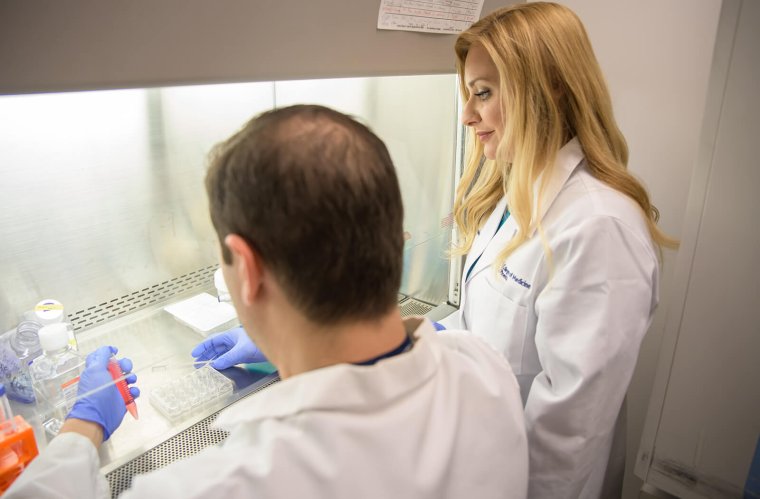The greater Phoenix area is one of the top emerging life science talent clusters in the nation, according to a new report from commercial brokerage firm CBRE.
The 2023 U.S. Life Sciences Research Talent report from CBRE identified Phoenix alongside Cincinnati, Tampa and Richmond as key emerging life science clusters in its annual report. It cited attractive NIH funding levels alongside important regional research institutions as its key indicators. The report said that the Phoenix MSA brought in $143 million in funding from the National Institutes of Health in 2022. That’s the fifth highest in the nation among emerging markets. It also highlighted Phoenix’s above average concentration of bioengineers, biomedical engineers and data scientists, as well as the above average number of graduates in biological and biomedical sciences.
The report also specifically called out Phoenix’s success on that last metric: graduates in biological and biomedical sciences. According to the report, Phoenix ranked #1 in terms of growth over five years (2016-2021) in biological and biomedical science degrees earned by any market at nearly 90%. That beats out Houston, Tampa, Dallas/Fort Worth, San Diego and more. In terms of total volume, New York, Los Angeles and Washington, D.C. rounded out the top 3. Phoenix ranked No. 14.
Key Numbers
Here are three key takeaways from the CBRE report:
$143 million
Total amount of NIH funding in Phoenix in 2022.
#1
What the Phoenix MSA ranked 5-year growth in biological and biomedical science degrees
33%
Growth of MSA’s life science research concentration from 20217-2022
Phoenix is an Emerging Cluster
While other cities are able to boast a deeper depth of research concentration in their cities already, Phoenix again came out as one of the top U.S. metros for above-average growth in the total number of life science researchers between 2017 and 2022. That puts it at the third fastest growing rate in the nation, behind only Atlanta and Boulder, Colorado. Dallas Fort Worth also had a 33 percent growth rate, as well.
This demonstrates that through intentional efforts such as the Flinn Foundation’s Bioscience Roadmap and many other strategic initiatives throughout the state, Phoenix is quickly becoming a hotbed for life science talent and companies looking for a place to call home. And when you add the fact that the state and its universities are doubling down on increasing Arizona’s health care workforce including a new school of medicine from Arizona State University, signs are only looking more positive going forward.

